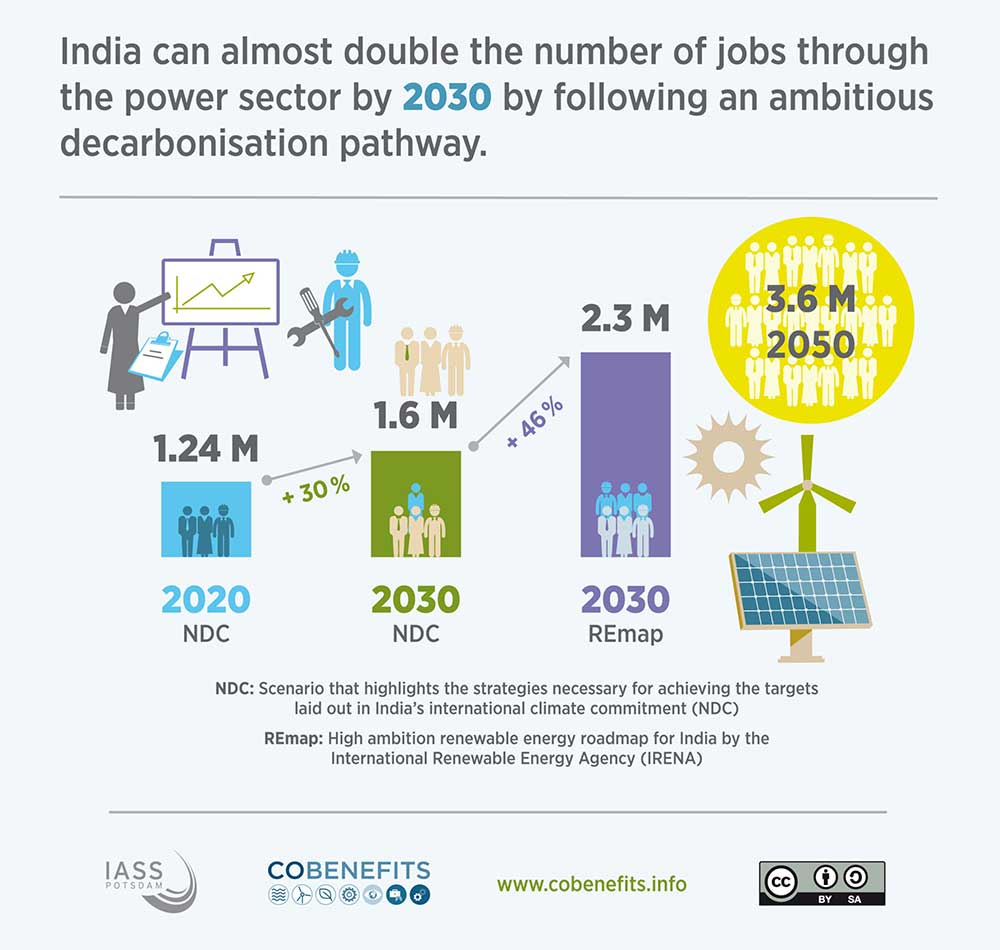From UPSC perspective, the following things are important :
Prelims level: COP-28:
Mains level: indigenize supply chains for clean energy

Central Idea:
India aims to balance economic growth and environmental concerns as it strives to become the fastest-growing economy, focusing on decarbonizing the power sector, ensuring development, and securing energy needs. Coal remains crucial, but strategies involve managing existing assets, enhancing coal fleet flexibility, incentivizing energy storage, and promoting domestic manufacturing of renewable energy technologies.
Key Highlights:
- India is actively involved in climate action, reducing fossil fuel subsidies, and planning a threefold increase in renewable power capacity by 2030.
- Coal, despite being essential, is slated to persist until India attains developed country status.
- Strategies include better managing thermal plant outages, increasing coal fleet flexibility, incentivizing energy storage, and promoting domestic clean energy manufacturing.
Key Challenges:
- Balancing economic growth with the imperative to phase down unabated coal.
- Uncertainty in predicting India’s coal reliance due to rising electricity demand.
- Adapting existing coal plants for flexibility in integrating renewable energy.
- Compensating entities for energy storage services and boosting domestic value and job creation in clean energy.
Key Terms:
- COP-28: The 28th Conference of the Parties, relevant to global climate change negotiations.
- Unabated Coal: Coal burning without a reduction in carbon emissions.
- Renewable Power Generation: Electricity from sustainable sources like wind, solar, and hydropower.
- Atmanirbhar: A Hindi term signifying self-reliance, commonly used in promoting domestic manufacturing.
Key Phrases:
- “Decarbonizing the power sector while ensuring economic development and energy security.”
- “Reducing overall fossil fuel subsidies” and “tripling installed renewable power generation capacity by 2030.”
- “Managing thermal plant outages during peak demand periods.”
- “Increasing the flexibility of the existing coal fleet to integrate more renewable energy into the grid.”
- “Indigenizing supply chains for battery storage and renewable energy technologies.”
Key Quotes:
- “India has reduced overall fossil fuel subsidies by 76% between FY14 and FY22.”
- “Coal will remain a vital energy source until India reaches the status of a developed country.”
- “Entities deploying batteries must be compensated for the value they bring to grid operation.”
- “Boosting domestic value and job creation in clean energy will mitigate concerns associated with disruptions in the global supply chain.”
Key Statements:
- “To keep the economy powered while decarbonizing, India must use existing assets better and invest in energy storage capabilities.”
- “Improving availability and utilization of existing plants can mitigate the need for investments in new thermal assets.”
- “Indigenizing supply chains for clean energy will support exports and domestic value additions, mitigating concerns of global supply chain disruptions.”
Key Examples and References:
- “In 2023, coal-based power plants in India witnessed unplanned outages during peak demand days.”
- “The PLI scheme committed funds to solar manufacturing, supporting domestic value additions.”
Key Facts and Data:
- “India reduced overall fossil fuel subsidies by 76% between FY14 and FY22.”
- “India produced coal worth substantial amounts in FY22, providing significant revenues to the government.”
- “The PLI scheme committed funds to solar manufacturing, supporting potential domestic value addition.”
Critical Analysis:
- The article underscores the tension between economic growth and environmental concerns in India’s energy strategy.
- Emphasizing strategies for managing existing assets and enhancing coal fleet flexibility reflects a pragmatic approach to the transition to renewables.
- Highlighting the importance of incentivizing energy storage services and promoting domestic manufacturing underscores the need for a comprehensive and sustainable energy policy.
Way Forward:
- Prioritize transparent assessments of long-term opportunity costs of conventional power sources.
- Focus on affordable electricity for all segments of the economy.
- Build on the success of the PLI scheme to further indigenize supply chains for clean energy.
- Implement policies encouraging flexibility in the coal fleet and compensating entities for energy storage services.
- Continue investing in renewable energy and storage technologies to align with global decarbonization commitments while ensuring energy security.
Get an IAS/IPS ranker as your 1: 1 personal mentor for UPSC 2024
